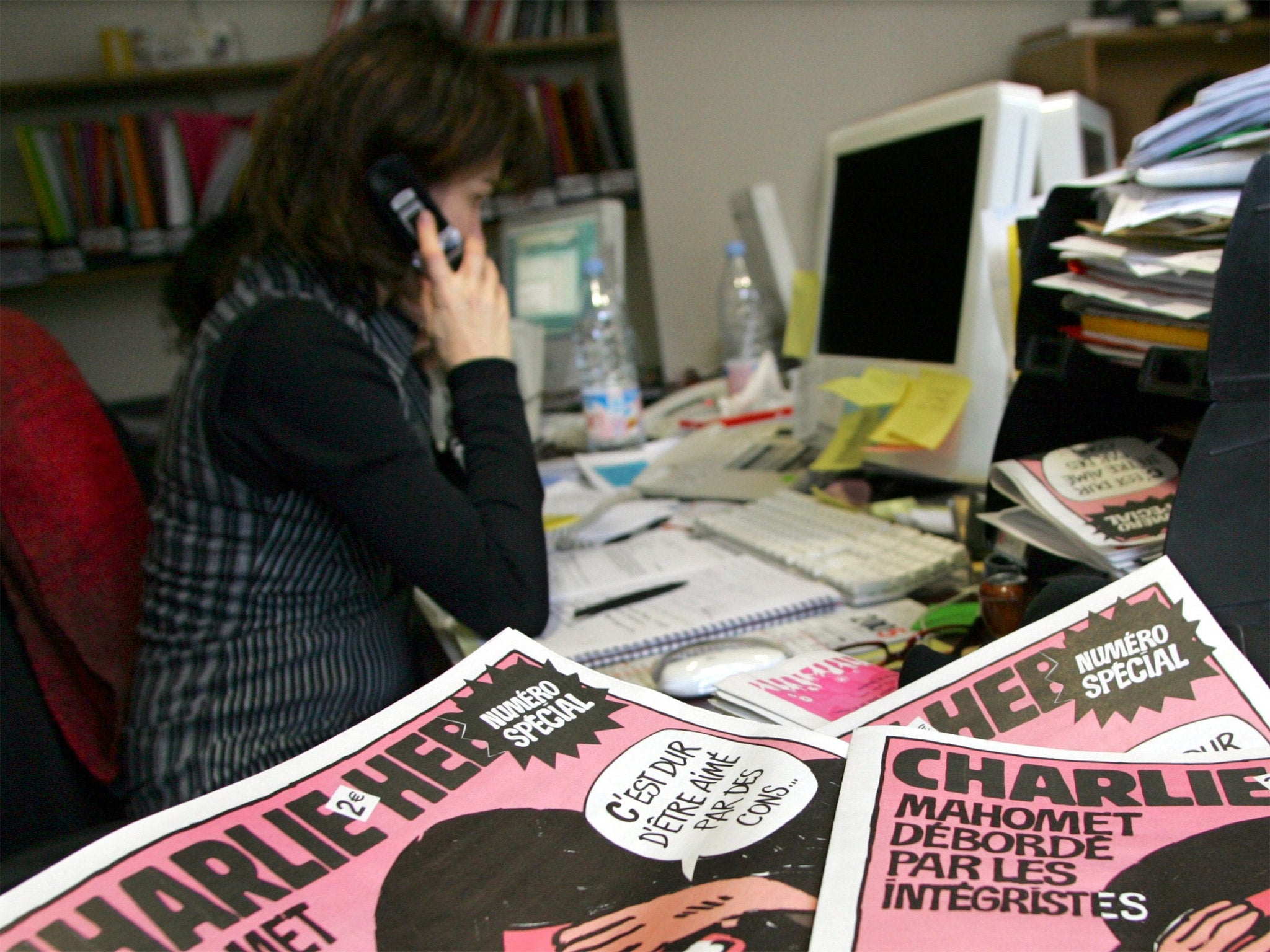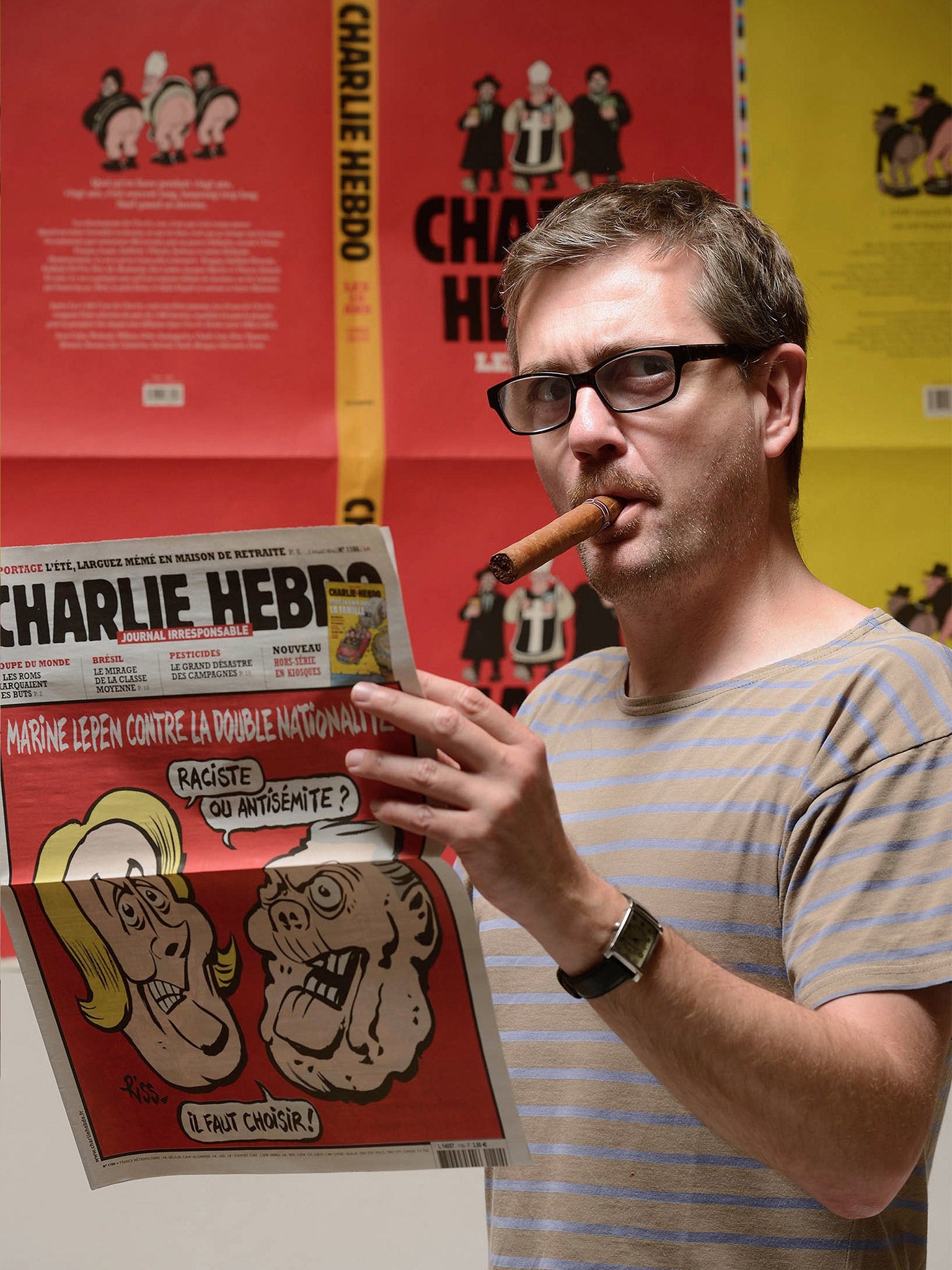What is Charlie Hebdo? A magazine banned and resurrected but always in the grand tradition of Gallic satire
Original incarnation banned in 1970 after printing a mock death notice for General Charles de Gaulle

Your support helps us to tell the story
From reproductive rights to climate change to Big Tech, The Independent is on the ground when the story is developing. Whether it's investigating the financials of Elon Musk's pro-Trump PAC or producing our latest documentary, 'The A Word', which shines a light on the American women fighting for reproductive rights, we know how important it is to parse out the facts from the messaging.
At such a critical moment in US history, we need reporters on the ground. Your donation allows us to keep sending journalists to speak to both sides of the story.
The Independent is trusted by Americans across the entire political spectrum. And unlike many other quality news outlets, we choose not to lock Americans out of our reporting and analysis with paywalls. We believe quality journalism should be available to everyone, paid for by those who can afford it.
Your support makes all the difference.Left-wing scandal sheets have been a proud French tradition since Marie Antoinette was led to the guillotine.
Now a modern-day terror has engulfed the streets of Paris after the attack on Charlie Hebdo, the satirical weekly which often targets radical Islam. Founded in 1969 as Hara-Kiri, its aim was to be “inane and nasty”. Its original incarnation was banned in 1970 after printing a mock death notice for General Charles de Gaulle.
Reappearing months later under the name Charlie Hebdo, its left-libertarian team of writers and illustrators, whose crude caricatures provided the magazine’s signature style, gleefully mocked all sources of political and religious authority. It folded in 1981 but was resurrected in 1992.
Whenever the publication was urged to recognise boundaries of political correctness or religious sensitivity it would deliver an ever more provocative and outrageous response, leading ultimately to its fatal encounter with Islamic extremism.
In 2006, Hebdo published the Danish cartoons of the prophet Mohamed that sparked riots across the Middle East. The cover was a drawing of Mohamed in tears, saying: “It’s hard to be loved by jerks.”
The edition tripled the magazine’s regular circulation of 100,000 and prompted a “racism” lawsuit from the Grand Mosque of Paris.
The then editor, Philippe Val, successfully argued that France’s freedom of speech and separation of church and state guaranteed the magazine’s right to criticise any religion.
Former President Nicolas Sarkozy, who was Interior Minister at the time of the 2007 trial, defended Charlie Hebdo as a newspaper “following an old French tradition, satire”. But its repeated lampooning of radical Islam prompted a violent response.

In November 2011, the magazine’s offices were fire-bombed after it published a special edition, supposedly guest-edited by the prophet Mohamed and temporarily renamed “Charia Hebdo”.
The cover featured a cartoon of Mohamed threatening the readers with “a hundred lashes if you don’t die laughing”.
A petrol bomb attack followed, which destroyed the magazine’s Paris offices.
Stéphane Charbonnier, who became editor in 2012, was given police protection after death threats.
The magazine published further cartoons of Mohamed and, fearing reprisals, the government appealed, in vain, to the editors to show restraint. French embassies and schools in 20 countries were shut down.
With the magazine under siege and riot police deployed at its offices, the Foreign Minister, Laurent Fabius, asked its editors: “Is it really sensible or intelligent to pour fuel on the fire?”
Charlie Hebdo’s editor-in-chief, Gérard Biard, who escaped the attack because he was in London, said: “A newspaper is not a weapon of war.”
Ian Hislop, editor of Private Eye, the UK’s leading satirical magazine, said the victims “paid a very high price for exercising their comic liberty”.
Mr Hislop added: “I am appalled and shocked by this horrific attack – a murderous attack on free speech in the heart of Europe. Very little seems funny today.”
Subscribe to Independent Premium to bookmark this article
Want to bookmark your favourite articles and stories to read or reference later? Start your Independent Premium subscription today.
Join our commenting forum
Join thought-provoking conversations, follow other Independent readers and see their replies
Comments